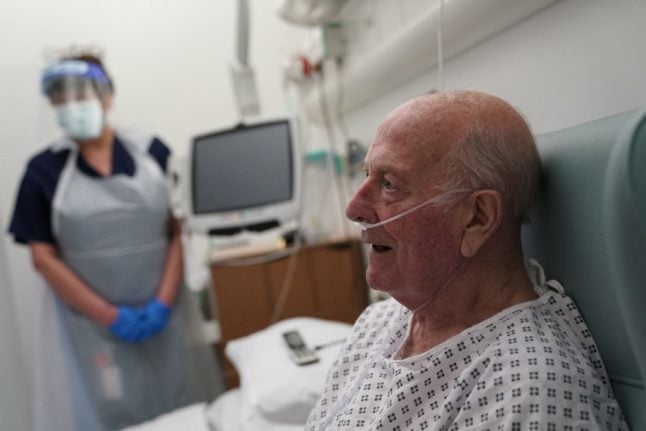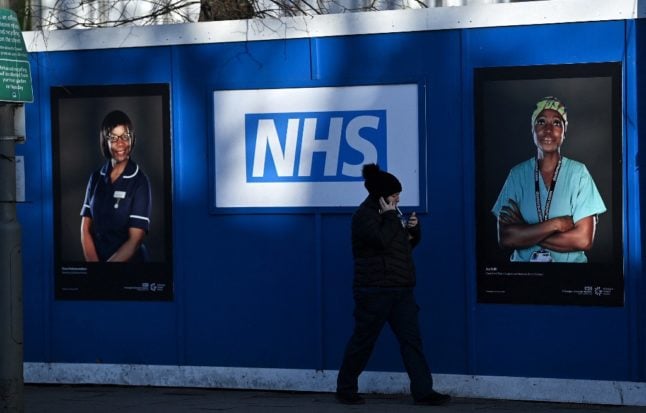The NHS is described by the British government as a “residence-based health service” which means that if you don’t live in the UK you’re not automatically entitled to NHS care, even if you are a British citizen and even if you still pay tax in the UK.
However funding, access and care rules can vary depending on your circumstances.
Healthcare for Brits in Spain
In order to have access to Spain’s public health system, you need to make social security contributions.
If you have a contract job in Spain, these contributions will be paid by your employer. If you’re registered as a self-employed worker (aútonomo), then it will be who pays these contributions as a monthly fee. If you have a Spanish pension, then you’re also covered.
If you are a UK pensioner, student or posted worker, it’s likely that the UK will continue to pay for your healthcare through the S1 system.
However, being covered by S1 doesn’t mean that you remain registered with the NHS – S1 is meant for non-UK residents.
So, once you have your S1 form, you can then register for a public health card in your region of Spain and have the same access to Spanish public healthcare as Spaniards, but it’s the UK government which reimburses your healthcare costs to Spain.
READ ALSO: The steps to apply for the S1 form for UK state pensioners in Spain
If you’re a UK national who wants to move to Spain post-Brexit but doesn’t intend to work in Spain, you will have to get comprehensive private healthcare with the same coverage as public healthcare offers, something difficult and costly for those with pre-existing health conditions.
Fortunately, after a year of residence in Spain, you can apply for the convenio especial (special agreement), a scheme where you pay either a monthly social security fee of €60 if you are under 65, or €157 if you are over 65, to get full access to public healthcare.
READ ALSO: What are the pros and cons of Spain’s convenio especial?
Can I stay registered with my UK GP?
No, you need to have a local UK address to be registered with an NHS GP. In practice, many people don’t get around to telling their GP that they have moved and so stay registered for months or even years, but technically you should notify your GP so that you can be removed from the NHS register.
Even if you do remain registered with a UK GP, they won’t be able to issue prescriptions for you in Spain as most UK GPs are not licensed to practice outside the UK – therefore are not covered by insurance.
If you are on regular medication, it may be possible for your GP to issue you with an advance stock of medication to cover you while you get settled in Spain, but many prescriptions are limited to a maximum of three months.

What about travelling outside Spain?
Once you’re registered in the Spanish system you will be able to get a European health insurance card known as the Tarjeta Sanitaria Europea (TSE), which covers medical care while on trips in Europe.
It’s basically the same as the EHIC you might have had while you were registered in the UK but it’s not issued automatically, you have to request it.
TSE card: How to get a Spanish European Health Insurance card
If travelling outside of Europe – ie a holiday in the US – you need to ensure that you have travel insurance with full medical cover in case of any mishaps while abroad.
What about trips back to the UK?
Although your day-to-day healthcare will be covered by the Spanish system, there’s still the possibility of falling sick or having an accident while on a trip back to the UK.
If you are an S1 holder you can show this to provide proof that you are entitled to NHS treatment, and if you are covered by the Brexit Withdrawal Agreement you can show your UK-issued EHIC or GHIC to provide proof of your entitlement to NHS care.
However, if you don’t have either of these, the TSE covers emergency treatment in the UK that can’t wait until your return to Spain, according to the Spanish government.
If you don’t have the chance to get a TSE before travelling to the UK, there’s something called the Certificado Provisional Sustitutorio (CPS), which is valid for 90 days and serves the same purpose. You’ll need Spain’s digital certificate to get it, as it can only be done online here.
READ MORE: How to get Spain’s digital certificate to help with online processes
So if you are charged for medical care while in the UK – because you do not have a UK address – then you will be able to claim the costs back once you return to Spain.
This also means that any Spanish nationals who are with you on your trip – such as a Spanish spouse or partner – have their emergency care costs covered too through the TSE.
In practice, most UK nationals who need to use the NHS while on trips back to the UK report that no-one ever thinks to ask whether they are UK residents.
It’s true that some Brits living in Spain keep their registration with a UK GP and make regular trips back to get prescriptions, while this can happen in practice it does involve lying or at least being economical with the truth about where you live.
Overall it’s better to get registered with a Spanish GP so that they can get to know you and have a full overview of your care as well as any ongoing medical conditions and prescriptions. Most Brits are pretty happy with Spanish healthcare, which consistently ranks among the best in the world.
Emergency care
There are certain types of NHS care that are not charged for, such as A&E treatment or treatment from paramedics, but if you need to be admitted to hospital you may have to pay.
NHS hospitals won’t turn you away if you cannot prove residency, but they may present you with a bill when you leave if you cannot prove either residency or health cover in a European country.



 Please whitelist us to continue reading.
Please whitelist us to continue reading.
Member comments